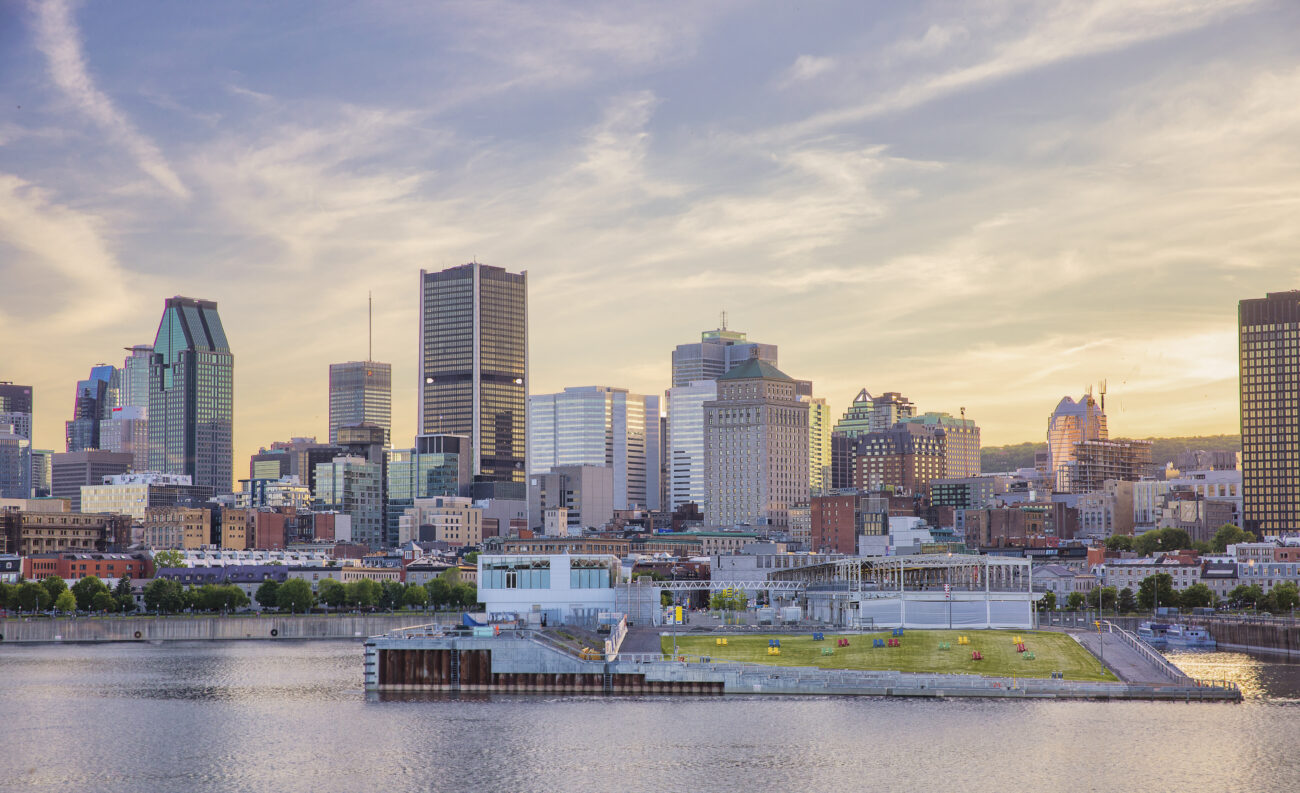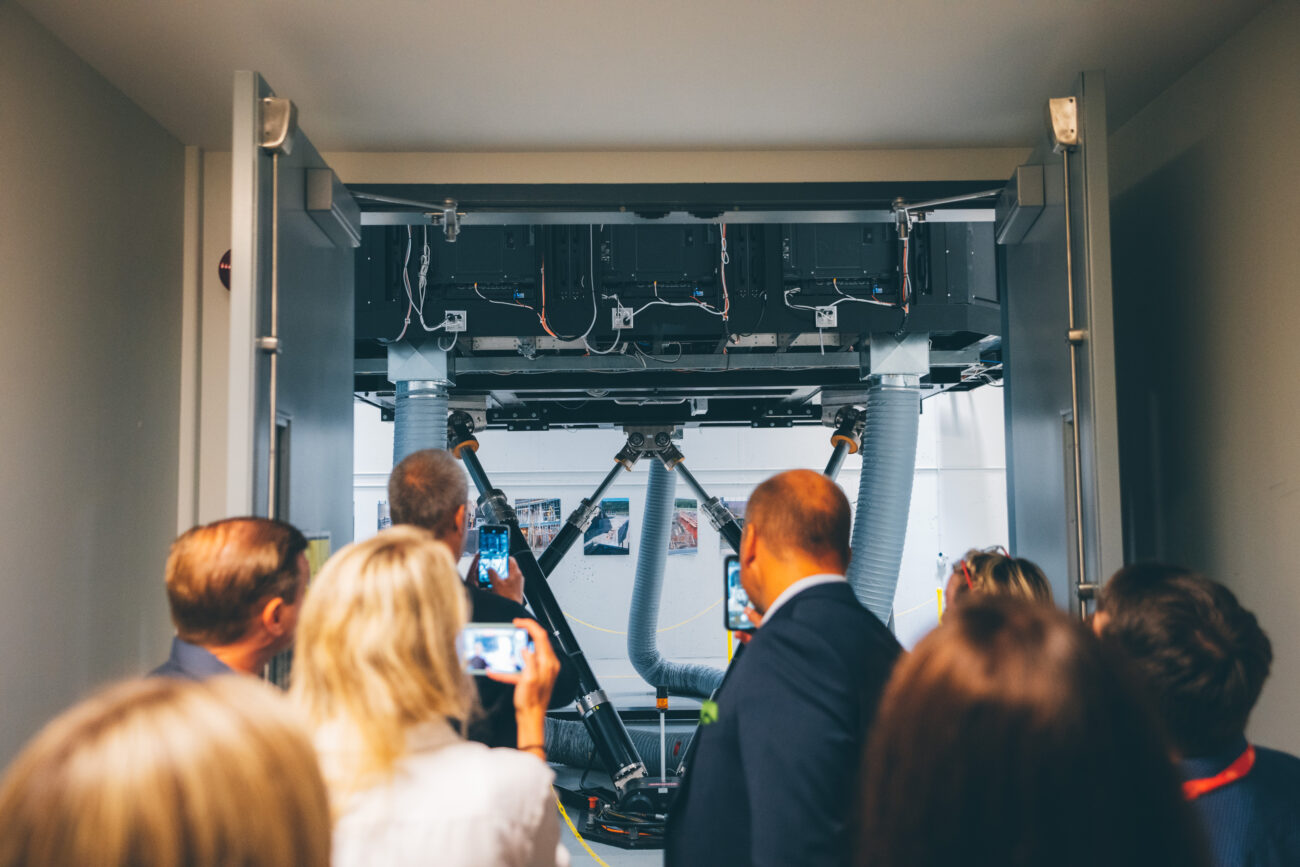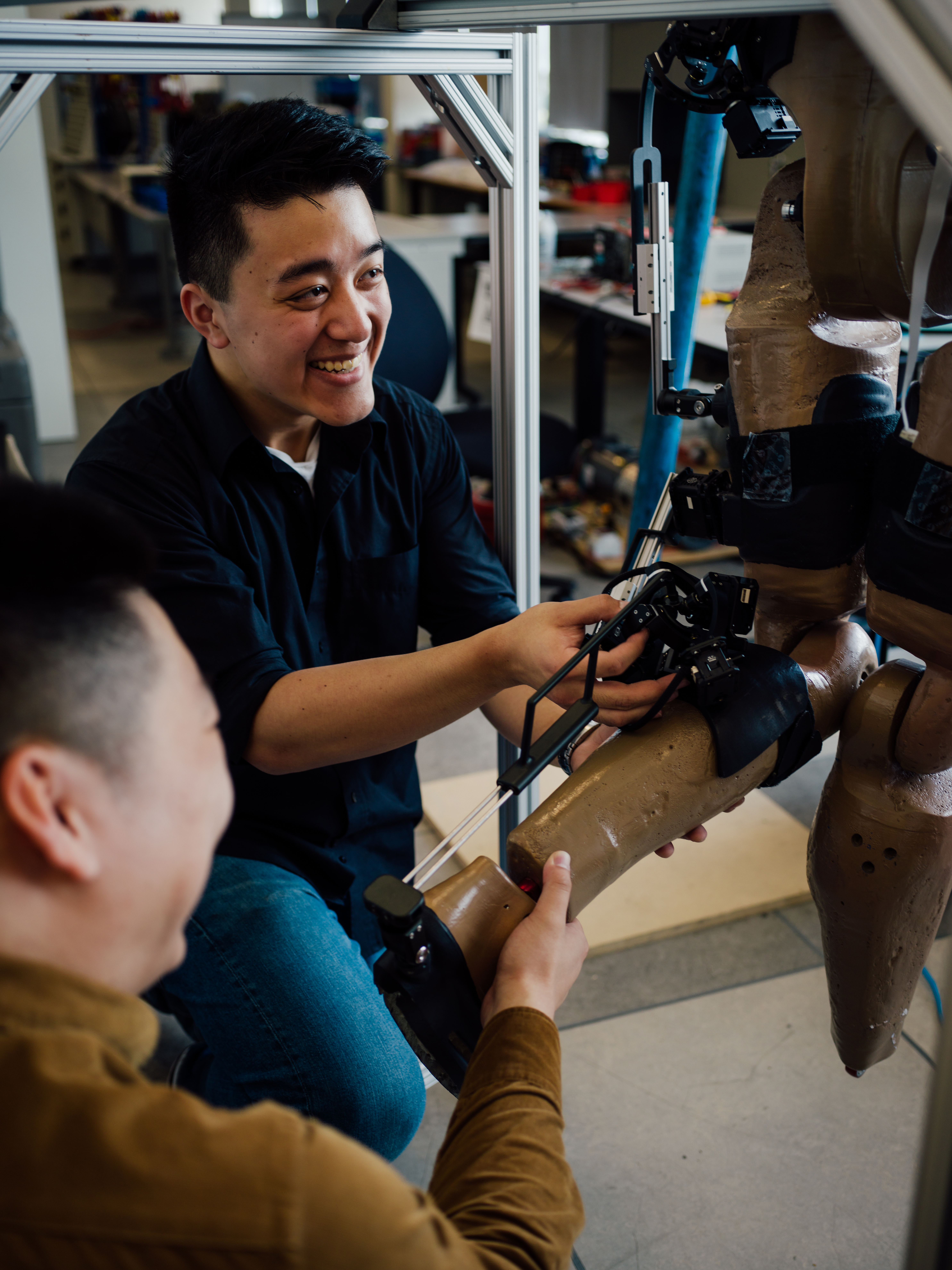By utilizing local intellectual resources to help drive collaboration, associations can grow industry membership, exchange best practices with sector experts, and learn more about the breakthroughs and developments that will shape their sector.
Here are three reasons why hosting an event in a destination with strong intellectual capital in an event’s sector of specialization makes all the difference.
All-access agendas
Firstly, intellectual capital can be a great tool to enhance agendas, since it gives associations access to industry-leading keynote speakers, the ability to conduct site tours of leading facilities, and the chance to preview cutting-edge innovations and developments. By bolstering an event’s agenda with experiences such as these, organizations are able to elevate their events and leave a marked impact on their attendees. It is access to industry-leading intelligence that truly helps an event stand out.
Access to ground-breaking industry intel is readily available in Canada. The team at Destination Canada Business Events, for example, offers planners resources like sector-specific experts, who are able to provide impartial insights and information regarding the industry strengths of Canadian destinations.
One great example of an event utilizing local experts in their programming was the 2022 Annual Meeting of the Ecological Society of America (ESA), in Montréal. ESA enlisted Etienne Laliberté, from the Université de Montréal (who leads the Laboratory of Plant Functional Ecology and is co-director of Québec’s Centre for Biodiversity Science), as a keynote speaker to build on the meeting theme “A Change is Gonne Come.” As the holder of the Canada Research Chair in Plant Functional Biodiversity, Laliberté was able to provide valuable insight on how ecologists are crucial to understanding the current changes the world faces, in order to anticipate future responses in the realm of ecology.

Providing opportunities for professional experiences outside of the conference room can play a huge part in inspiring event attendees. In the case of Canada, the country’s knowledge capital spans a range of sectors and there are plenty of opportunities to tour relevant facilities.
For example, St. John’s, the capital of the province of Newfoundland and Labrador, is a leader in the oceans sector and offers groups access to Memorial University’s Marine Institute, which houses the world’s longest flume tank and the National Resource Council Canada’s Ocean, Coastal and River Engineering Research Centre — home to one of the longest ice tanks on the planet. As for those in advanced medicine or the nuclear industry, groups can visit industry-leading facilities like the cutting-edge Fedoruk Centre for Nuclear Innovation in Saskatoon, which has helped place Saskatchewan (and Canada as a whole) among global leaders in nuclear research, development and training.
The Niagara Region, meanwhile, is home to leading viticulture organizations like the Vineland Research and Innovation Centre and Andrew Peller Limited, both of which associations interested in agribusiness can connect with during their programme.
For those in the tech industry, in the Waterloo Region, you’ll find Google’s largest R&D offices in Canada. This makes for an impressive resource that associations can tap into to add purpose during their event, by driving discussion or knowledge sharing on hot topics. The fact that Canada is so seamlessly able to combine its brains with its beauty makes it the ideal destination for events looking to inspire their organisation and attendees.

Boosting attendance & garnering support
Secondly, by hosting events in an industry hub, associations and other organisations can garner higher attendance, thanks to interest from the local sector workforce and additional promotion within the destination’s professional networks.
Again, Canada shines here and the country boasts vast numbers of professionals, spread across the country’s major cities, in a range of key sectors. For example, according to CBRE’s 2021 Tech Talent Rankings, Ottawa had the highest concentration of tech talent relative to its overall workforce. Meanwhile, Toronto is the second largest financial services hub in North America – second only to New York City. So what does this mean, exactly? More potentially interested local professionals which, in turn, means more delegates.
As CBRE Canada Vice Chairman Paul Morassutti put it: “The past year (2021) underscored Canada’s status as a leading destination for employers seeking tech talent. We’ve all come to appreciate the vital role that tech plays in our lives, especially during the pandemic, but it’s also a key driver of the Canadian economy — and securing tech talent has never been more essential.”

In terms of event support from the host destination, one great example is The Oceanographic Society’s (TOS) Ocean Optics Conference in 2016, which was held in Victoria, in British Columbia. More than 300 attendees from around the world — including active practitioners in the field, such as oceanographers, marine ecologists, and optical engineers — gathered for presentations on topics related to aquatic environments, research and applications.
Part of the reason TOS selected this destination was due to the accessibility of local institutions and resources, and the assistance from Victoria’s ocean science ecosystem. As the Executive Director of the Oceanographic Society, Jennifer Ramarui explains: “The proximity of the Victoria Conference Centre to the University of Victoria was also an important factor in selecting Victoria as the conference location. Faculty and students from that institution are quite active in the study of optical oceanography; many supported the conference by serving on the planning committee, as presenters, and as volunteers.”
Cost-saving strategies
Last but not least are the cost issues. Given the current economic climate, cost considerations are indeed becoming increasingly important when it comes to event planning. This is where, once again, local resources make all the difference. Access to local keynote speakers reduces transportation costs (in terms of trains, planes, and even hotels), for instance, and hosting events in a destination that prides itself in a specific sector may mean access to funding and sponsors.
Toronto, for example, is one of the world’s fastest-growing tech hubs and a pioneer in Artificial Intelligence (AI)/Machine Learning (ML), cybersecurity, communications tech, and fintech. This top convention destination — which ranks among North America’s top five in the CBRE list — is the headquarters for 40% of Canada’s businesses, as well as home to five universities.
Events hosted in the city, therefore, are able to leverage local know-how for their benefit. At this year’s edition of Collision, “the world’s best speakers,” tech leaders, and media descended on Toronto — including more than 35,000 attendees from 130 countries, plus 250 partners and more than 700 investors. The event agenda took advantage of Toronto-based players like Interac and Rogers, as well as Jeff Shiner, CEO of the Toronto-based password management company 1Password – which has grown its team from two to more than 500 since launching in 2005 – who spoke at the conference.
Canada also has a strong natural resources sector, and one of the key hubs is Alberta, where both Edmonton and Calgary specialize in cleantech and energy. The Edmonton Metropolitan Region claims one of the country’s largest concentrations of energy, mining and manufacturing businesses.
This wealth of expertise and innovative outlook is what gives events like the Canadian Hydrogen Convention — which champions Canada’s leadership in the global hydrogen economy — support from Alberta-based, multinational pipeline company Enbridge and ATCO, a Canadian engineering, logistics and energy holding company. The event, which gathers innovators in production processes and pioneers in fuel cell technology, included speeches from a few local experts like Amanda Mesluk, Manager of Research & Innovation at Alberta Motor Transport Association; Hon. Dale Nally, Associate Minister of Energy; and Heather Campbell, Executive Director, Clean Technology for Alberta Innovates.
Montréal, meanwhile, is one of Canada’s leaders in terms of R&D thanks to pioneering software providers like Element AI, SCALE AI, Canada’s AI supply chain supercluster, and the International Centre of Expertise in Montréal for the Advancement of AI. The World Summit AI Americas, now in its fifth year, hosts its two-day event in Montréal as a way to bring together the top AI minds and leading industry speakers and influencers from business, science and technology to see how AI can help solve real-world issues.
Aside from hosting in a destination with an impeccable AI reputation, the event came to Montréal, in part, thanks to sponsorship from major players like BrainBox AI, Investissement Québec, and Montréal International, in addition to community support from local players like the CHUM School of Artificial Intelligence in Healthcare (SAIH) and Tourisme Montréal.
For impartial insights, inspiration and introductions, planners can contact the Destination Canada team: Virginie De Visscher, Senior Director of Business Development, Economic Sectors, Destination Canada Business Events. Devisscher.virginie@destinationcanada.com

Coast-to-coast knowledge capital
By looking to particular cities and regions that show strong leadership in a specific area, planners can capitalize on this knowledge and use it to enhance an event.
Canada, for example, excels in leadership in six sectors: Technology, Finance and Insurance, Agribusiness, Natural Resources, Life Sciences, and Advanced Manufacturing.
The Destination Canada Business Events team can provide recommendations on destinations based on their sector strength; facilitate introductions to industry leaders, academia, and economic development agencies; and recommend great local speakers to help boost event attendance and cut costs at the same time.
While Canada’s expertise in these aforementioned sectors is certainly enough of a draw to attract events, the country has plenty of other selling points. Not only are its dynamic cities accessible, they’re surrounded by natural beauty, offer a friendly and welcoming environment catering to delegates from around the world, and provide leadership in hosting sustainable events.
By meeting in Canada, attendees will have access to some of the brightest minds and institutions in their industry. Associations will be able to meet with purpose and leave delegates with insights, connections and experiences that will continue to drive innovation within an organisation and foster meaningful personal development for years to come.
